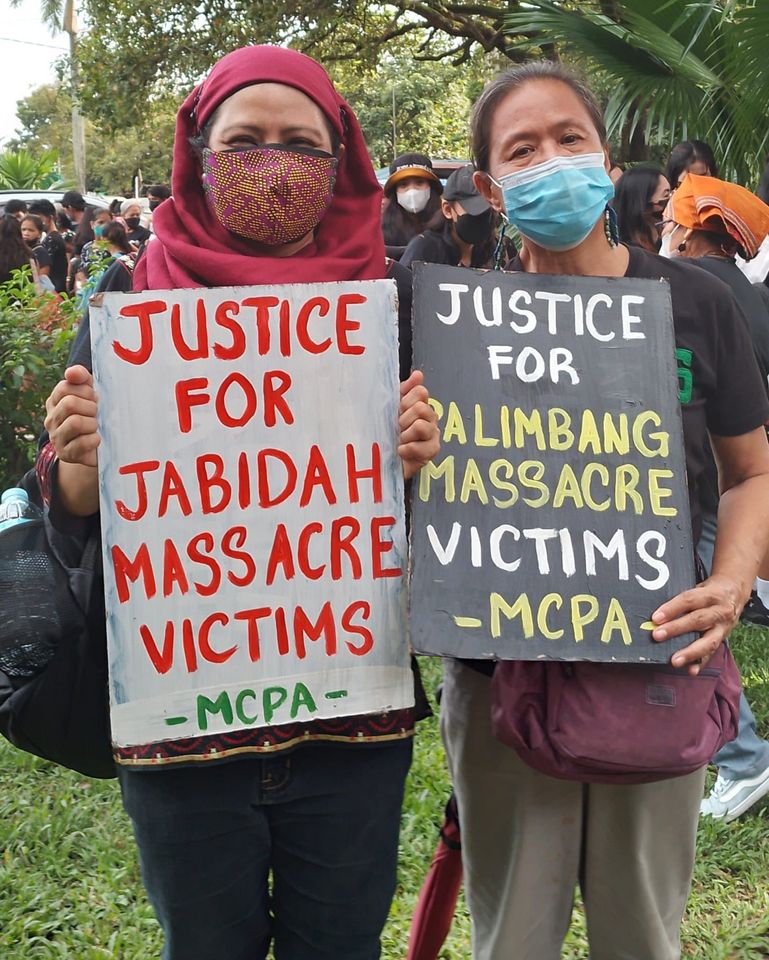‘We will never forget the atrocities! We will continue our fight for justice!’
Reaction to Senator Robin Padilla’s statement re Martial Law@50
By Amirah Lidasan
Assalamo Alaikum, brother Robin.
Your Bangsamoro brothers and sisters cannot accept your talk asking us to forget the dark years of Martial Law, and “move on” so that we can “grow.”
To forget the decade-long dictatorship is to perpetuate impunity and injustice for the victims of human rights abuses during Martial Law.
As survivors and families of victims of Martial Law, we can never forget the brutal military operations launched to force the Bangsamoro people out of our communities in Mindanao and to subdue the Bangsamoro resistance that defended our communities and fought for our right to self-determination.

How can we forget the killings or “salvaging,” the massacres, the mass arrests and detention, the torture, the burning and destruction of our communities?
Many Bangsamoro children were not only orphaned but became victims themselves as the military, police, and vigilantes committed the worst forms of human rights violations against our people.
On September 24, we will be reminded again of the Palembang Massacre, the death of more than 1,500 Bangsamoro people in the town of Sultan Kudarat in 1972.
To this day, the perpetrators are still not held accountable for these crimes. Worse, they returned to power with the help of a systematized campaign of historical distortion, massive disinformation, electoral fraud, and six-year years of former President Duterte’s fascist rule.
Most of the Bangsamoro victims were not recognized and some were left out of the compensation program. We were again subjected to the same atrocities as former President Duterte unleashed a five-month campaign of military airstrikes and ground operations in Marawi City.
It is disappointing and downright insulting to ask us to forget. We had hoped that your place in the Senate would help amplify our voice for justice, rather than be part of the apologists of the worst human rights violators. #
(The author is an officer of Bayan Muna Party and the Moro-Christian Peoples’ Alliance)
